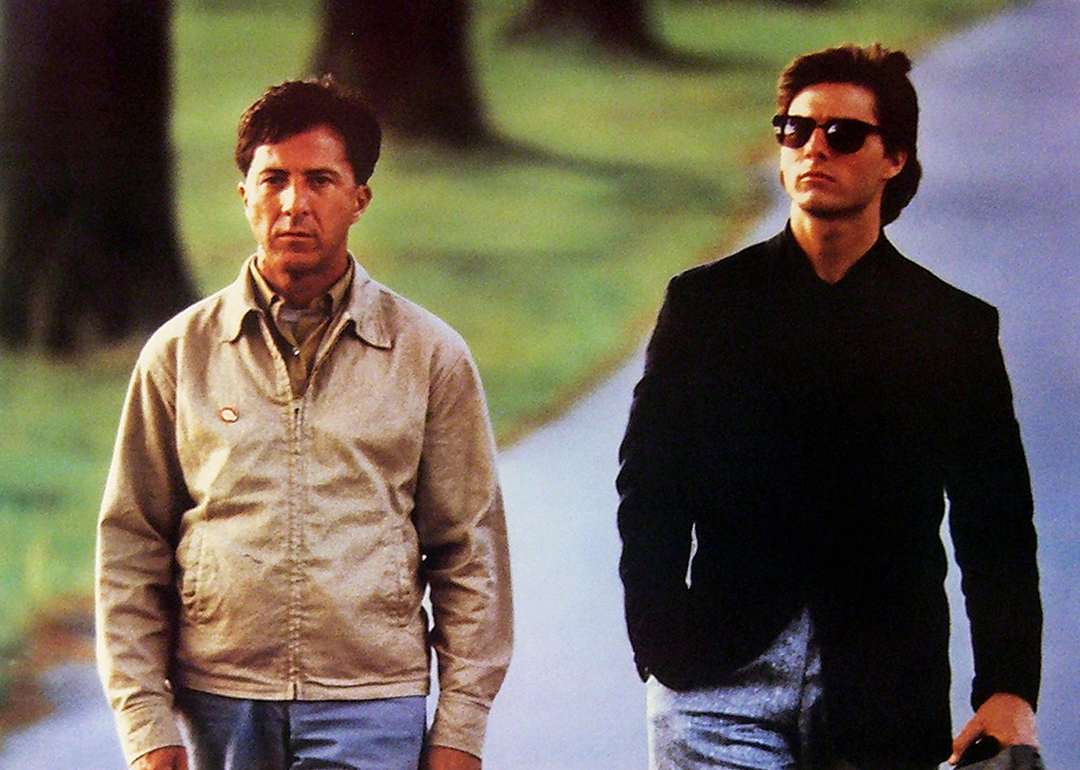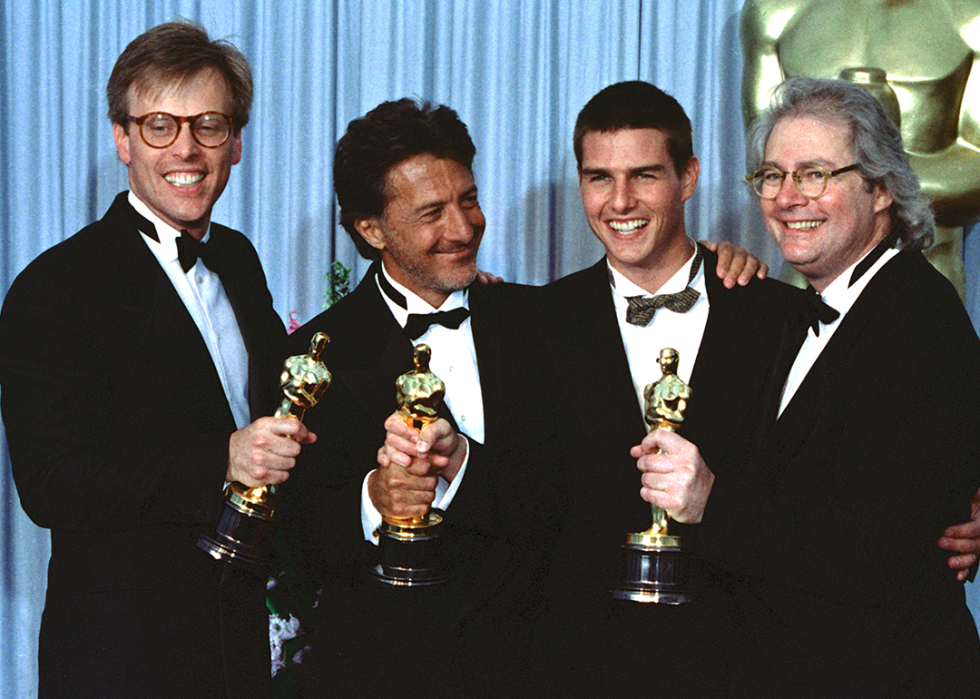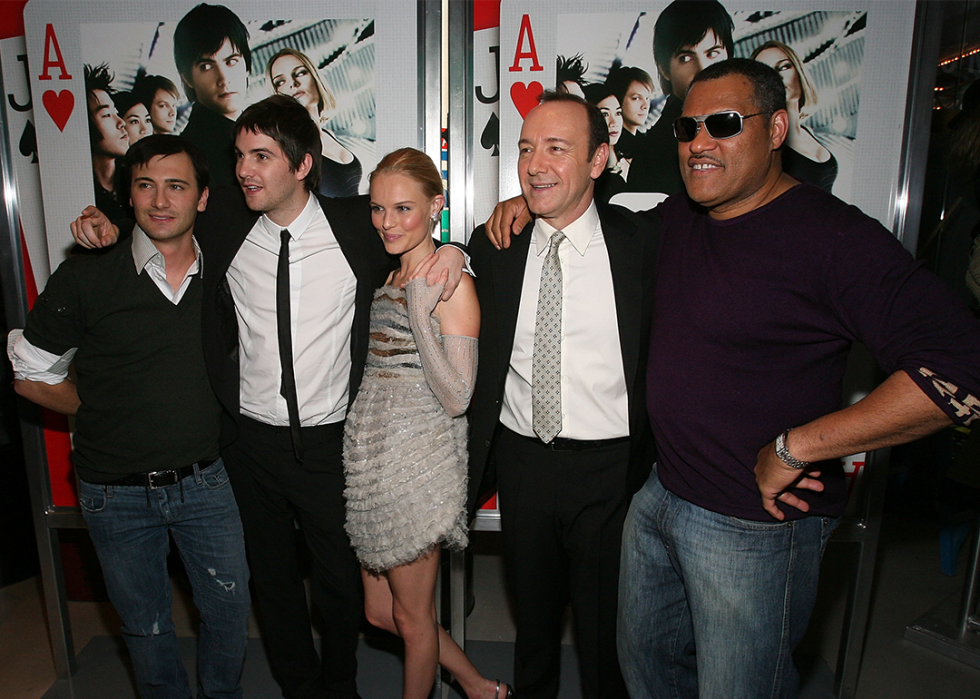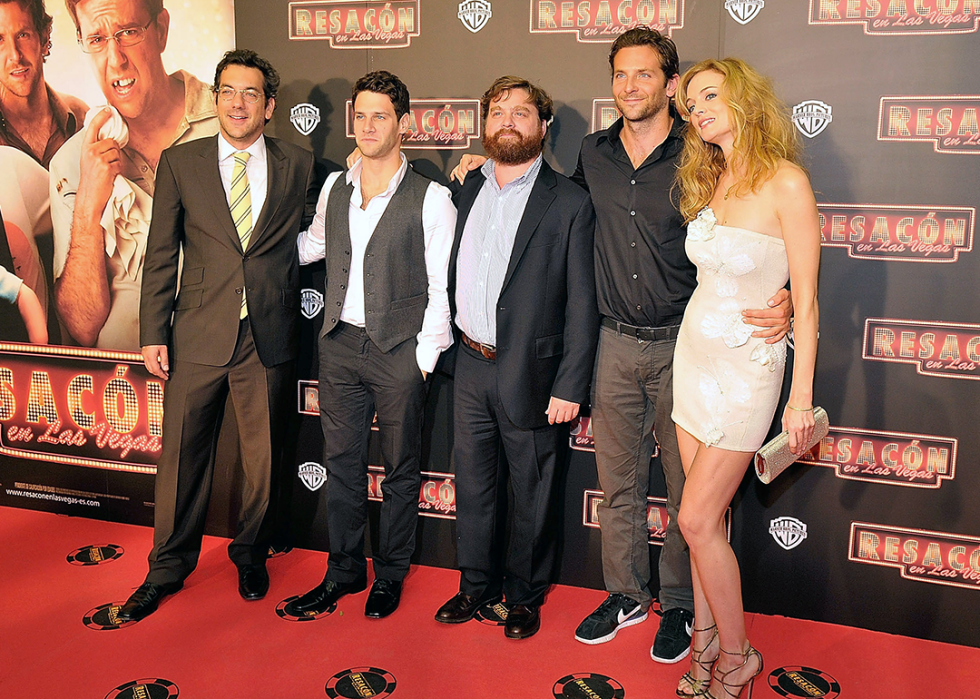
5 of the best movies about card counting
This story originally appeared on Gamesville and was produced and distributed in partnership with Stacker Studio.
5 of the best movies about card counting
When players sit down at a table in a casino, they know that "the house always wins." In other words, even if you hit a lucky streak, in the long run, the casino owners are invariably going to come out on top.
But in the late 1950s, four engineers—Roger Baldwin, Wilbert Cantey, Herbert Maisel, and James McDermott—designed a mathematical system to help flip a blackjack player's odds. Known mythically as the "Four Horsemen," they used desk calculators and their mental acuity to devise the concept of card counting to help players win more at the popular game Twenty-One.
Several years later, mathematician Ed Thorp legitimized their findings in a book called "Beat the Dealer," using computers to prove players could gain an edge over casinos with the group's method. How does it work? There are different variations, but generally, players designate each card a number value that they add up during each hand and keep a running tally.
Low cards are worth a negative point, while 10s and face cards earn a positive point, a predictive categorization that doesn't rely on genius so much as having good memory and accurate math skills.
In the decades since Thorp's book was published, card counting has never been deemed illegal within the United States, but the tactic has remained a persistent subject of controversy. As one character in "The Hangover" goofily declares, the practice is "frowned upon," mostly because casinos find it a threat to their profits. The contentious dynamic has made it ripe for Hollywood treatment. After all, who doesn't love seeing a savant underdog outwitting the house? Blackjack movies underline that relationship, turning gambler and dealer against each other in electric, thrilling, and often exaggerated ways.
To get a better sense of its portrayal in Hollywood, Gamesville compiled a list of five of the best movies about card counting. Read below to see which ones made the cut.

Rain Man
- Director: Barry Levinson
- IMDb user rating: 8 (549K reviews)
- Metascore: 65
- Runtime: 133 minutes
- Release date: Dec. 16, 1988
The title of Barry Levinson's drama starring Tom Cruise and Dustin Hoffman might be derived from a mispronunciation of the name "Raymond" by the protagonist, but it's since become shorthand for card-counting and mathematical savants.
The movie, which won Best Picture at the 1989 Oscars, follows Charlie Babbitt (Cruise), who learns his estranged father has passed away and left $3 million to the mental institution where his autistic older brother, Raymond (Hoffman), lives. It's not long before he hijacks his brother on a cross-country road trip to Los Angeles, hoping to gain back the money he was promised—and then later repay some debts he's accrued. Along the way, he discovers Raymond's uncanny card-counting abilities and puts his brother's skills to the test in Las Vegas, where Raymond stocks up on chips and cashes out with $86,000.
Though this wasn't the most accurate depiction of card counting (it would be nearly impossible for Raymond to get an accurate count of the cards in the deck upon sitting down), it's magnetizing to watch a crowd of onlookers—and a cheerleading Cruise—surround him in awe while casino floor managers hustle to stop him.

The Card Counter
- Director: Paul Schrader
- IMDb user rating: 6.2 (43K reviews)
- Metascore: 78
- Runtime: 112 minutes
- Release date: Sept. 10, 2021
Part of writer-director Paul Schrader's unofficial "Man in a Room" trilogy that centers around middle-aged men writing in diaries about their existential crises, "The Card Counter" uses the casino as a backdrop for exploring deep-seated trauma and isolation.
William Tell (Oscar Isaac) is a former serviceman who learned to count cards during an eight-year prison stint. Since his release, he's traversed the casino trail, racking up winnings before anyone gets too suspicious of his methods. But his solitary lifestyle hiccups when he connects with Cirk (Tye Sheridan), a vulnerable young man looking to exact revenge on a colonel (Willem Dafoe), a mutual enemy from both of their pasts.
The movie makes good on its title, specifically in one scene when Tell explains how to count cards in voiceover by explaining that the practice is one of probability, not clairvoyance. "The idea is to bet little when you don't have the advantage, and more when you do," he says, before abruptly leaving the table when the dealer catches on to his winning streak.

21
- Director: Robert Luketic
- IMDb user rating: 6.8 (267K reviews)
- Metascore: 48
- Runtime: 123 minutes
- Release date: March 28, 2008
Based on the true story of a group of MIT students who were part of a blackjack club in 1993 (as chronicled in the book "Bringing Down the House"), director Robert Luketic's "21" demonstrates the inherent thrills and dangers that belong to card counting. Unlike the more mainstream offerings on this list, this drama is tethered to the numbers game.
It follows a group of students (including Jim Sturgess and Kate Bosworth), under the leadership of a mathematics professor (Kevin Spacey), who learn how to count cards and develop codes for relaying communication on the casino floor. They take their expertise to Las Vegas, where they rack up big money. But trouble occurs the deeper the team gets lost in winning, eventually pitting its lead student in a war with a Planet Hollywood head of security (Laurence Fishburne) that threatens to ruin everything.
Like "The Card Counter," "21" devotes considerable detail to the team's methodology and scheming, explaining over training montages the ways to count the deck and the vocabulary coding system that alerts teammates about a deck's makeup.

The Last Casino
- Director: Pierre Gill
- IMDb user rating: 7 (1.6K reviews)
- Metascore: not available
- Runtime: 93 minutes
- Release date: June 26, 2004
"The Last Casino" might be a Canadian TV movie, but it's also one of the rare stories that dedicate its entire running time to counting cards.
Also drawing from the book "Bringing Down the House," Pierre Gill's thriller inverts the plot of "21." It chronicles a math professor's desperate attempt to pay off his debts after getting banned from casinos in Ontario and Quebec. To do so, he forms a blackjack team, recruiting three student proteges to take over his mastermind enumerating. This requires a training sequence in which the professor elucidates in a detailed way how a team of three players works a blackjack table.
As Gill artfully demonstrates, there are all kinds of sign language symbols, foot crosses, and counting techniques to alert the team's players exactly what they should bet once they sit down to play. As soon as a new deck is brought in, the player will head to a different table, where another teammate has already been standing by to relay the count—so simple and yet so challenging.

The Hangover
- Director: Todd Phillips
- IMDb user rating: 7.7 (851K reviews)
- Metascore: 73
- Runtime: 100 minutes
- Release date: June 5, 2009
One of the most commonly used GIFs on social media is clipped from a scene in "The Hangover," when mathematical equations flutter all around Alan (Zach Galifianakis) in the middle of counting cards at the blackjack table.
The Todd Phillips comedy follows four buddies—including those played by Bradley Cooper, Ed Helms, and Justin Bartha—whose bachelor weekend in Las Vegas goes terribly wrong when they're drugged and lose the groom-to-be along with memories of the night before. As they frantically retrace their blacked-out steps, they run into all sorts of trouble, including losing $80,000 of an Asian gangster's money. In need of a quick money-making solution, the group leans on Alan to pull off his best "Rain Man" and improbably win back their debt.
While "The Hangover" might not strictly be about card counting, the tactic—illustrated for comedic effect with nonsensical trigonometry symbols—proves a crucial deus ex machina to the comedy's drunken plot. The movie won the Golden Globe for Best Motion Picture - Comedy or Musical that awards season, and it likely convinced amateur gamblers they could count like Alan too.
Story editing by Carren Jao. Additional editing by Kelly Glass. Copy editing by Paris Close.



